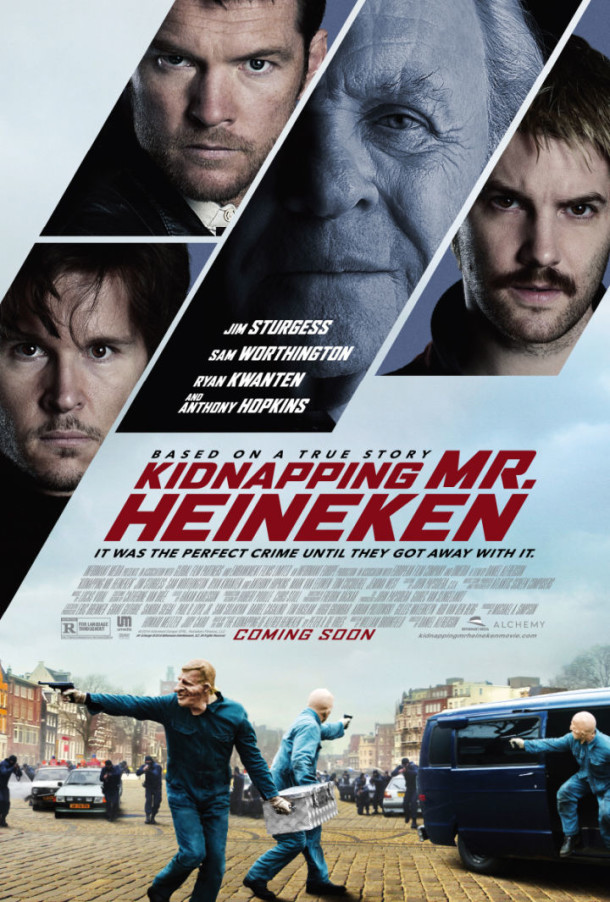 In 1983, five men who were desperate for cash kidnapped Freddy Heineken, the CEO of Heineken and one of the richest men in the Netherlands. The kidnapping caper spanned three weeks and made international headlines. The events surrounding the kidnapping have inspired two films in recent years — first, 2011’s The Heineken Kidnapping starring Netherlands native Rutger Hauer as Freddy Heineken, and now Kidnapping Mr. Heineken, starring Anthony Hopkins as the millionaire brewery magnate.
In 1983, five men who were desperate for cash kidnapped Freddy Heineken, the CEO of Heineken and one of the richest men in the Netherlands. The kidnapping caper spanned three weeks and made international headlines. The events surrounding the kidnapping have inspired two films in recent years — first, 2011’s The Heineken Kidnapping starring Netherlands native Rutger Hauer as Freddy Heineken, and now Kidnapping Mr. Heineken, starring Anthony Hopkins as the millionaire brewery magnate.
Cor (Jim Sturgess), Willem (Sam Worthington), Cat (Ryan Kwanten), Spikes (Mark van Eeuwen), and Brakes (Thomas Cocquerel) are longtime friends and business failures who come up with the plan to kidnap Heineken (Hopkins) to eliminate their money problems. Of course, none of them are experienced at kidnapping, so naturally problems arise when after the kidnapping there is no response to their ransom note for two weeks. Tension builds, particularly between ringleaders Cor and Willem, and it soon becomes clear that there is no way that the kidnappers will be able to escape judgement for their crime.
Despite his prominent billing, Hopkins is mostly a supporting player here — in fact, 90% of his scenes take place in the room he is being held and he likely filmed them in only a few days. Humorously, he still throws his weight around despite being the kidnapping victim. He’s great as usual, but he has very limited screentime. The kidnapping gang members are roughly interchangeable, which also suggests that the writing isn’t great because they’re difficult to tell apart.
Though stylistically the film is right up the alley of Swedish director Daniel Alfredson‘s previous films like The Girl Who Played with Fire and The Girl Who Kicked the Hornets’ Nest, the narrative of Kidnapping Mr. Heineken seems to be missing a few key storyline elements. Worthington’s character is the son of a longtime employee of Heinekein, which makes him express resentment of the Heinekein brand for some reason in an early scene. Is it because of jealousy? Is it because of something done to his father? There’s no explanation even though it seems to be Willem’s main motivation for the kidnapping. Also, since the police never revealed how they discovered who was behind the kidnapping, that part of the plot is obviously missing. Screenwriter William Brookfield based the film on the book by Peter R. de Vries, a crime reporter who covered the kidnapping, but that doesn’t mean the narrative can be tied together in a tighter way.
Kidnapping Mr. Heineken has some great moments, including an exhilarating chase scene early in the film. However, because there is so much that is left under the table here it seems like its better material for an investigative documentary than a narrative film. Anyone who enjoys crime dramas would likely enjoy seeing this kidnapping caper, but there seems to be three-quarters of a movie here instead of a total package.
Review Overview

















Recent Comments